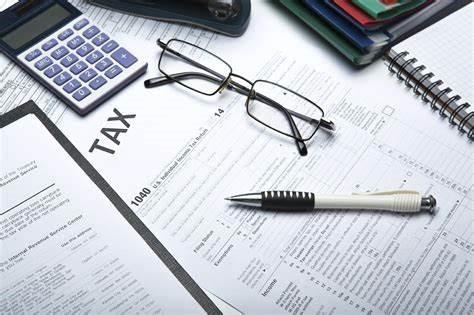Abbotsford Personal and Corporate Tax Differences

Financial ignorance of a large number of people leads to many delusions about the tax. It can be defined as an imposed obligation that every individual or legal entity has to pay to the state. But people usually don't understand the real purpose of the taxes. They don't know who the taxpayers are, whom they give their money, and how they will use these funds.
Taxes are the most important source of income for any country. Without this, it would not be possible to finance public order and peace, education and health systems, infrastructure projects, capital investments, and so on. The state must have certain funds to provide citizens with services of general interest.
Both individuals and legal entities are obliged to pay taxes. People despise when they don't know where their money goes and usually try to avoid these charges. But the state needs these funds even when you don't need a particular public service. In this way, the availability of these services is guaranteed to everyone.
Find more information of importance of public services here:
https://en.wikipedia.org/wiki/Public_service.
Who Are Taxpayers?
If you are employed, both you and the employer are taxpayers. As far as your tax obligations are concerned, they are waiting for you on the Tax Day (it’s not a holiday, just a pre-determined date when all residence should settle their obligations).
On the other hand, the company you work for has a more complicated filling procedure. One type of their financial obligations is something your employer does by 'cutting it off' your gross salary. It is not the part of your real earnings; just a charge your employer pays to the state for your work. The amount you get is net salary.
The part of gross salary the employer pays to the state is intended for employees' health and pension insurance, but also for the functioning of public institutions. Besides, companies should pay income tax, known as corporate tax, regularly.
Different Rates for Personal and Corporate Taxes
Procedures of tax filling are different for companies and individuals. Since most people are not financially educated, everything about paying taxes is simplified for them. They do not have to fill in too many forms and lose their time waiting in line. Today, they can do everything online.
The procedure for companies is complicated because it requires filling a variety of forms. Depending on the type of company, entrepreneurs will know how to fulfill their legal obligation towards the state. Also, the tax base differs for individuals and legal entities.
The base for calculating this charge varies and depends on several factors. The income of a single person is the start point for tax calculation. Other essential elements are marital status, the number of kids, and other income, such as part-time jobs or farming. Self-employment is the only way for corporate entities to pay personal tax.
In larger legal entities, tax rate depends mostly on profit (higher profit, higher the tax income), and the form of business arrangement (partnership, joint-stock company, etc.). Business entity type determines on how much money will remain to companies after they pay all their obligations.
Deadlines
Given the more complicated procedure for paying taxes, legal entities have a more extended deadline for filling and settling these financial duties. Companies usually do documentation fillings quarterly or semi-annually. In their case, the state doesn’t tolerate delays so they should take care of these deadlines. The late-payment penalties are quite high.
Individuals have a single due date for paying taxes (in the US, it's April 15). They also have fines if miss the deadline, but also one mitigating circumstance - if fill for a tax extension on time, they will get another deadline. Also, individuals will avoid additional fees for being late with filling and paying taxes.
Tax Return
Business owners get significantly higher tax deductions from individual taxpayers. They have several types of write-offs. The more costs the company has, the tax return will be higher. Companies usually get these payments at the end of the year. The sum may be satisfying, so it's worth waiting. This way, states incentivize companies to settle their obligations regularly.
The procedure for refunds for individuals is easy, but these amounts are usually not high. People get write-offs in the form of check or invoice, or a reduction of the interest on a loan or mortgage. In both cases, Abbotsford tax preparation accountants suggest consulting a financial expert in order to get the most of the tax refund.
Consequences of Not Paying Taxes
Paying taxes often has negative connotations, and people avoid this obligation, often being unconscious they are committing a crime. Thus, the first consequence of non-paying taxes is penalties. Fines happen to be the most effective way to force individuals and companies being responsible taxpayers.
Penalties and fees that accumulate after missing a pay day increase your charge amount multiple times. And not to mention, you'll need more time and money to fix this issue. Hiring an experienced accountant to get you out of the problem could cost a little fortune. So your try attempt to save can cost you even more.
If everyone stops paying taxes, the public services would be inaccessible to the vast of citizens. Funds in the state cash register are distributed evenly; all of these actions are transparent so that every responsible taxpayer can see the benefits of paying these.
More to Read:
Previous Posts:


